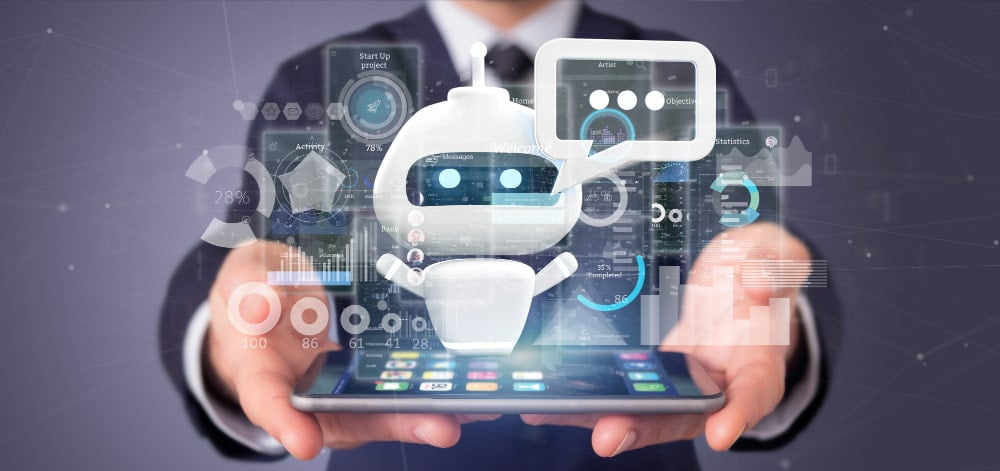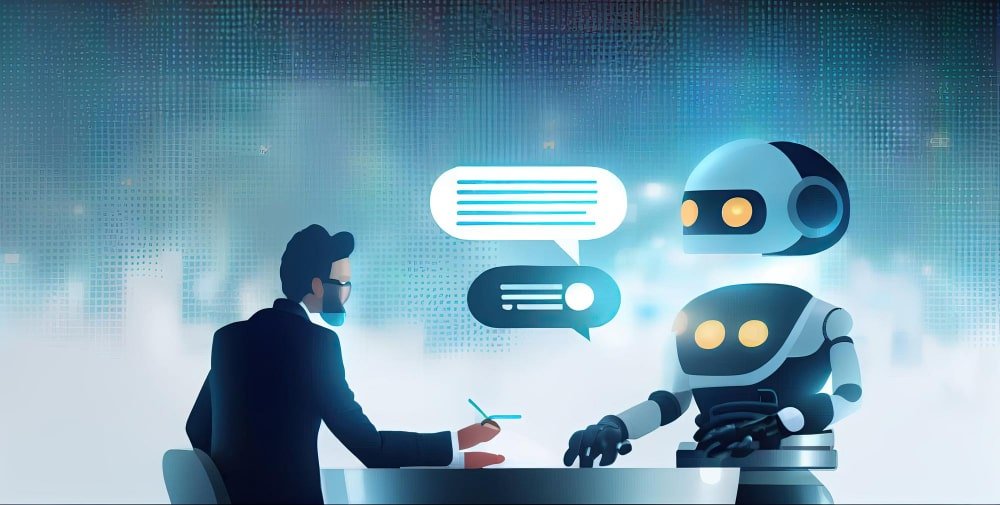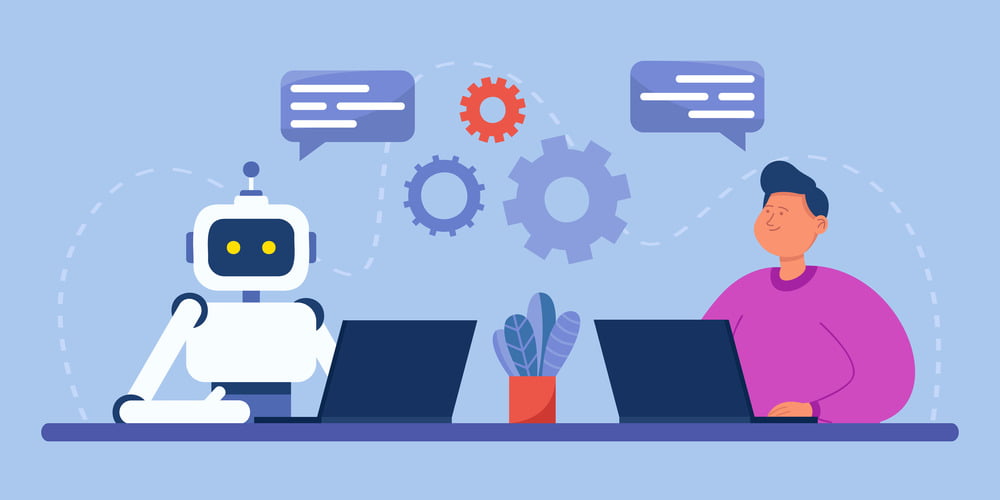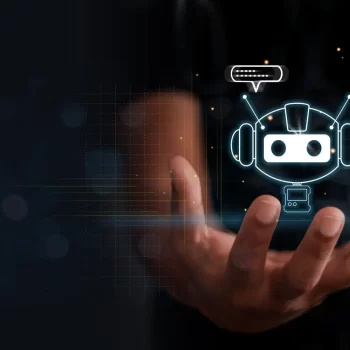Artificial intelligence in customer service has emerged as a critical differentiator for businesses seeking to stay ahead of the competition. As customer expectations continue to evolve, companies are exploring innovative solutions to provide efficient, personalized, and engaging support experiences. Enter generative AI (AI), a powerful technology with the potential to revolutionize customer service interactions. By simulating human-like conversations and generating contextually relevant responses, generative AI holds the key to unlocking new levels of customer satisfaction and operational efficiency.

The most effective utilization of generative AI in customer service lies in its ability to enhance and augment human interactions rather than replace them entirely. Through intelligent automation, businesses can streamline repetitive tasks, such as responding to frequently asked questions, freeing up human agents to focus on more complex and emotionally demanding customer queries.
The integration of generative AI empowers customer service teams to scale their support capabilities, ensuring prompt and consistent responses to a large volume of inquiries, regardless of the time or day. Furthermore, by leveraging natural language processing capabilities, generative AI can better understand customer intent and sentiment, enabling personalized and empathetic interactions that resonate with individual customers on a deeper level.
Related article: How to deliver consistently good customer service
What is Generative AI?
Generative AI is an artificial intelligence approach that focuses on generating data that is similar to the training data it was provided with. Unlike conventional AI systems that rely on predefined rules and data patterns, generative AI has the ability to produce novel content based on its understanding of the input data. This technology employs deep learning techniques, such as recurrent neural networks (RNNs) and transformers, to learn patterns and relationships from vast amounts of data, allowing it to create new and contextually relevant content.
Advancements of Artificial Intelligence in Customer Service
Natural Language Processing (NLP) Capabilities
One of the significant advancements in generative AI is its improved natural language processing abilities. Early AI systems often struggled to understand nuanced customer queries and provided generic responses. With advancements in NLP, modern generative AI models can interpret and respond to complex customer inquiries more accurately, providing personalized and relevant information.
Training Data and Neural Networks
The accuracy of generative AI heavily depends on the quality and quantity of training data available. With vast amounts of data being generated daily, AI models can now be trained on diverse customer
interactions, enabling them to learn from real-world scenarios and develop a deeper understanding of customer needs.
Transfer Learning
Transfer learning has played a pivotal role in improving the accuracy of generative AI. Pre-trained models can be fine-tuned for specific customer service tasks, reducing the need for extensive training and speeding up the deployment of AI-powered customer service solutions.
Context Awareness
Modern generative AI models can now take context into account while responding to customer queries. This context awareness allows the AI to provide more coherent and relevant answers, simulating human-like conversation and enhancing the overall customer experience.
Multimodal AI
Advancements in multimodal AI have enabled generative models to understand and respond to not just text but also images, videos, and audio. This expanded capability, including integrating text-to-video technology, allows businesses to offer a more comprehensive and interactive customer service experience.
How is Generative AI Used in Customer Service?
Generative AI has found numerous applications in customer service, transforming the way businesses interact with their customers. Some of the prominent use cases include:
Automated customer support: Generative AI-powered chatbots can handle customer queries and issues round the clock, providing instant responses and reducing the burden on human agents.
Personalized recommendations: By analyzing customer behavior and preferences, generative AI can offer tailored product or service recommendations, enhancing the overall shopping experience.
Natural language understanding: Generative AI systems can understand and process natural language, allowing customers to interact with the technology using everyday language, making communication more human-like and intuitive.
Content generation: Businesses can leverage generative AI to create personalized emails, product descriptions, and other content, saving time and resources while maintaining a consistent brand voice.
Sentiment analysis: Generative AI can analyze customer sentiments from their interactions, helping companies gauge customer satisfaction and identify areas for improvement.
Benefits of Generative AI in Customer Service
Enhanced Customer Experience
Generative AI enables businesses to provide faster, more accurate, and personalized responses, leading to a significantly improved customer experience.
Scalability and Cost Efficiency
With AI-powered chatbots and virtual assistants handling routine inquiries, businesses can scale their customer support without proportionally increasing costs.
24/7 Availability
Generative AI-powered systems operate round the clock, ensuring that customers can access support whenever they need it, regardless of time zones or business hours.
Reduced Response Times
AI-driven chatbots can swiftly respond to customer queries, reducing wait times and ensuring prompt issue resolution.
Data-Led Insights
By analyzing customer interactions, generative AI can provide valuable insights into customer behavior and preferences, aiding in making data-driven business decisions.
Rise of ChatGPT in Customer Service
In recent years, the customer service landscape has undergone a dramatic transformation, largely driven by advancements in artificial intelligence (AI) and natural language processing (NLP). One of the most significant developments in this domain has been the rise of ChatGPT in customer service. ChatGPT, powered by the GPT-3.5 architecture developed by OpenAI, has revolutionized the way companies interact with their customers, providing personalized, efficient, and round-the-clock support.
ChatGPT is an AI language model that can understand and generate human-like text responses. It can comprehend context, language nuances, and sentiment, making it ideal for engaging in natural conversations with customers. As a result, businesses have increasingly integrated ChatGPT into their customer service operations to improve efficiency and enhance the overall customer experience.

One of the main reasons for the popularity of ChatGPT in customer service is its ability to handle multiple customer inquiries simultaneously. Traditional customer support teams often face challenges when dealing with a high volume of inquiries, leading to long wait times and frustrated customers. With ChatGPT, companies can handle numerous customer queries simultaneously, reducing response times and ensuring a seamless experience for users.
Moreover, ChatGPT’s availability round-the-clock has significantly impacted customer service operations. Unlike human agents who require rest and have limited availability, ChatGPT can operate
24/7, providing instant support to customers regardless of the time zone they are in. This constant accessibility improves customer satisfaction and helps companies cater to a global customer base efficiently.
Personalization is another key area where ChatGPT shines in customer service. The AI language model can analyze vast amounts of customer data, including past interactions and purchase history, to tailor responses according to individual preferences and needs. Customers are more likely to feel valued and understood when interacting with an AI that can remember their past interactions and offer personalized recommendations, thereby strengthening customer loyalty.
As ChatGPT continues to learn and improve from its interactions with customers, its accuracy and effectiveness in addressing inquiries also increase over time. This self-learning capability allows ChatGPT to become more adept at handling complex and unique queries, gradually reducing the need for human intervention in certain cases.
Accuracy of Generative AI in Customer Service
While generative AI, including ChatGPT, has shown remarkable progress in customer service applications, it is essential to acknowledge its limitations. Generative AI may occasionally produce incorrect or irrelevant responses, especially when faced with ambiguous or complex queries. However, continuous learning and fine-tuning based on user feedback can significantly improve accuracy over time.
Businesses must strike a balance between automation and human intervention to ensure that critical issues are addressed appropriately. AI-augmented human agents can complement generative AI by handling more complex or sensitive inquiries, ensuring a high level of accuracy and customer satisfaction.
Challenges in Achieving High Accuracy
Ambiguity and variability in customer queries: Customer queries are often ambiguous and can vary greatly in structure and intent. Achieving high accuracy in understanding and responding to such queries remains a significant challenge for generative AI systems.
Bias and inclusivity: AI models can inherit biases present in the training data, leading to potentially biased responses in customer interactions. Ensuring that generative AI remains inclusive and unbiased is an ongoing concern that requires continuous monitoring and improvement.
Scalability: While generative AI has shown impressive accuracy on a smaller scale, achieving consistent accuracy and scalability for large-scale customer service operations is still a challenge. As the volume of customer interactions increases, maintaining accuracy becomes more complex.
Handling out-of-domain queries: Generative AI models are designed to handle specific domains or tasks. When faced with queries outside their domain, they may struggle to provide accurate responses. Improving generalization capabilities to handle out-of-domain queries is a challenge that needs attention.
Transparency and explainability: The lack of transparency and explainability in some advanced AI models can be a roadblock to their adoption in critical customer service scenarios. Customers may be hesitant to trust AI-generated responses without understanding how they were generated.
Related article: Navigating the Path of AI-based Customer Helpdesk Software: Challenges, Benefits & Features
Conclusion
Generative AI has emerged as a transformative force in the customer service landscape, empowering businesses to deliver superior customer experiences with personalized and efficient interactions. From automated support to personalized recommendations, the applications of generative AI are vast and impactful.
ChatGPT, in particular, has garnered widespread attention for its advanced capabilities and seamless integration into customer service workflows. While there are challenges regarding accuracy, the benefits of generative AI in customer service are undeniable.
As this technology continues to evolve, businesses must stay at the forefront of innovation, leveraging generative AI to build stronger customer relationships and gain a competitive edge in the market


















